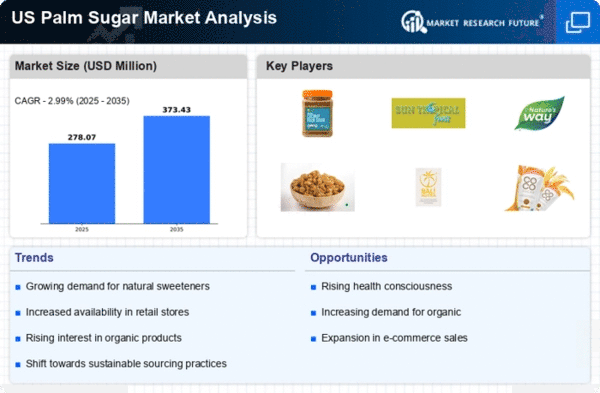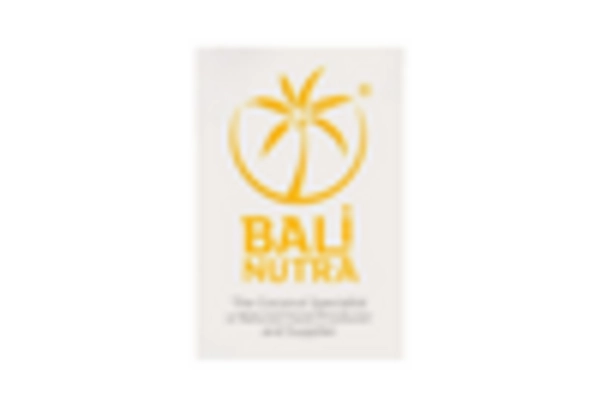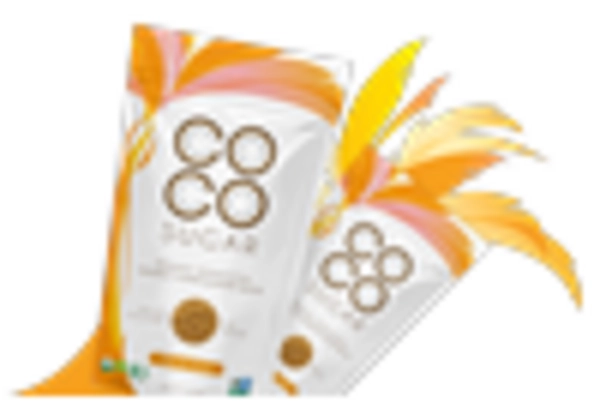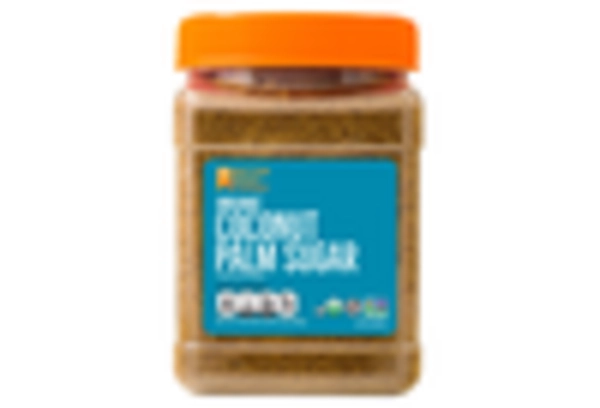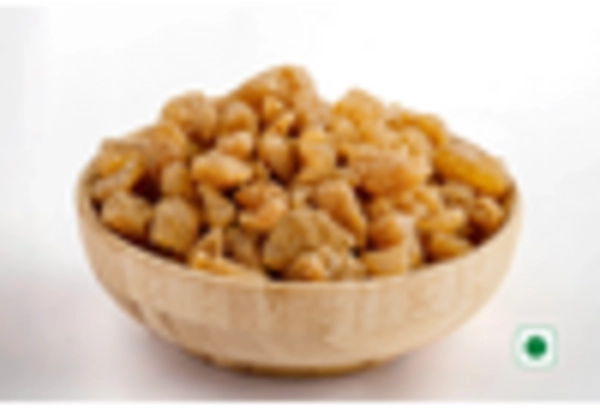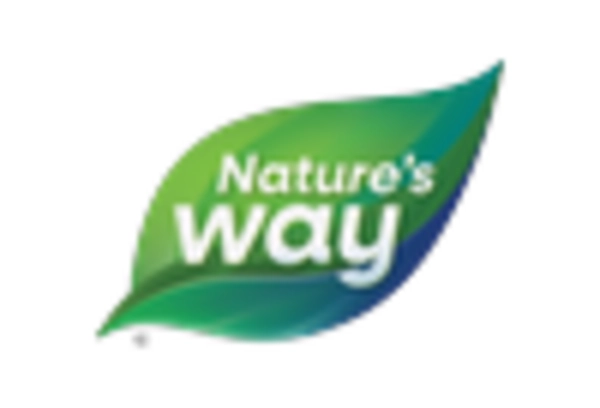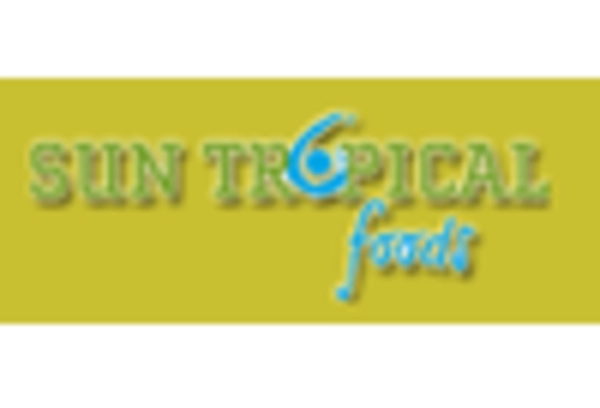Growth of Organic Food Sector
The expansion of the organic food sector is significantly influencing the palm sugar market. As more consumers gravitate towards organic products, the demand for organic palm sugar is likely to increase. Recent statistics indicate that the organic food market in the US has experienced a growth rate of around 10% annually. This trend suggests that the palm sugar market could see a corresponding rise in interest, as organic palm sugar aligns with consumer preferences for clean and sustainable food sources. Retailers are increasingly stocking organic palm sugar to meet this demand, which may enhance its visibility and accessibility. The palm sugar market stands to gain from this organic movement, as consumers are willing to pay a premium for products that are perceived as healthier and more environmentally friendly.
Health Consciousness Among Consumers
The increasing awareness of health and wellness among consumers appears to be a pivotal driver for the palm sugar market. As individuals seek alternatives to refined sugars, palm sugar, known for its lower glycemic index, is gaining traction. This shift is reflected in market data, indicating that the demand for natural sweeteners has surged by approximately 20% in recent years. The palm sugar market is likely to benefit from this trend, as consumers prioritize products that align with their health goals. Furthermore, the rise in lifestyle-related health issues has prompted a reevaluation of dietary choices, leading to a growing preference for natural sweeteners like palm sugar. This evolving consumer behavior suggests a sustained interest in healthier options, which could further propel the palm sugar market in the coming years.
Increased Focus on Sustainable Agriculture
The increased focus on sustainable agriculture practices is likely to impact the palm sugar market positively. As consumers become more environmentally conscious, they are seeking products that are produced sustainably. Palm sugar, often sourced from small-scale farmers using traditional methods, is perceived as a more sustainable option compared to conventional sweeteners. Recent reports indicate that the demand for sustainably sourced products has risen by around 30% in the past few years. This trend suggests that the palm sugar market could experience growth as consumers prioritize sustainability in their purchasing decisions. Additionally, initiatives aimed at promoting sustainable farming practices may further enhance the appeal of palm sugar, positioning it as a responsible choice for environmentally aware consumers.
Culinary Trends Favoring Exotic Ingredients
Culinary trends that favor exotic and unique ingredients are emerging as a notable driver for the palm sugar market. Chefs and home cooks alike are increasingly incorporating palm sugar into their recipes, drawn by its distinct flavor profile and versatility. This trend is evident in the rise of fusion cuisine, where traditional recipes are reimagined with innovative ingredients. Market analysis suggests that the use of palm sugar in gourmet cooking has increased by approximately 15% over the past few years. The palm sugar market is likely to benefit from this culinary shift, as more consumers experiment with diverse flavors in their cooking. This growing interest in unique ingredients may lead to an expanded market for palm sugar, as it becomes a staple in both professional kitchens and households.
Rising Popularity of Vegan and Plant-Based Diets
The rising popularity of vegan and plant-based diets is emerging as a significant driver for the palm sugar market. As more individuals adopt these dietary lifestyles, the demand for plant-based sweeteners is likely to increase. Palm sugar, being a natural product derived from the sap of palm trees, aligns well with the principles of veganism. Recent data indicates that the plant-based food market has grown by approximately 25% in the last few years, suggesting a robust interest in alternatives to animal-derived products. The palm sugar market could see a substantial boost as consumers seek out sweeteners that fit their dietary choices. This trend may encourage manufacturers to innovate and expand their product lines to cater to the growing vegan demographic.


